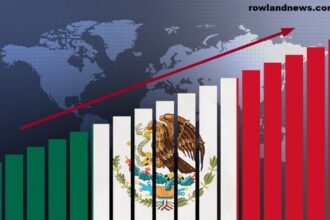It’s been a while since you got a raise. Maybe you’ve received funds. You may have been saving diligently and now have a lovely, tiny amount of money in your savings account. However, there’s an important question that’s lingering in the air: How do I make the most of my cash?
Whether you’re in your early twenties, just getting started out, and are now in your 40s and seeking to increase your money, this issue can be both personal and empowering. The truth is that money is just a tool. And, like every other instrument, the way you utilize it will determine the results. Can it help you build an enduring existence? Will it bring you an environment of freedom? Or slowly disappear without being noticed?
This guide is going deep into how to handle your money no matter what stage you’re in on the financial process. It’s not just an article about planning your budget or investing, it’s about preparing yourself for long-term security and financial tranquility.
Why This Question Matters More Than Ever
In a time when there is a constant stream of the latest financial news–cryptos here and there, side hustles everywhere and real estate-related FOMO all over the place, it’s common to be overwhelmed. However, having money but being unsure of how to use it is like driving a car but not knowing what to do with it.
Many people get caught in two traps common to everyone:
- Not doing anything about their money sitting it idle in savings accounts that have low interest or spending it without thinking about it.
- Risky investments without having a strategy: investing in trends that they aren’t familiar with or spending too much for the sake of “living for today.”
Both could lead to regret.
With a little understanding and planning, you avoid these traps and make the money you earn work for you.
Define What Money Means to You
Before diving into the actions or investments, take a moment to pause and ask yourself:
“What do I want my money to do for me?”
Every person’s response will differ. For some, money is assurance that the expenses are paid regardless of what happens. Others enjoy the freedom to move around, switch careers or even retire earlier. Perhaps you’re looking to create the wealth of your generation, invest in an apartment, or help the community you live in.
Your objectives define your plan. Without this clarity, it’s easy to become caught up in another’s model of success.
Build a Solid Financial Foundation
When you are investing your money or making major purchase decisions, ensure that the foundation of your finances is solid. Consider it similar to making a house: you require the foundation to be solid before adding additional floors.
1. Start with an Emergency Fund
A fund for emergencies can be your financial security net. It should cover 3 to 6 months of expenses that are essential, such as food, rent or utilities, as well as insurance in the event of job loss, medical emergencies and unexpected expenses.
Pro Tip: Keep your emergency money in a savings account in order to get higher rates of interest. The NerdWallet list can be a great spot to evaluate choices.
2. Pay Off High-Interest Debt
The debt on your credit card can be an unintentional murderer. In the event that interest rates average more than 20 percent, a credit card balance could quickly deplete the money you have.
Imagine putting your money into a bank account to earn a 7% yield only to lose an average of 20% per year on the interest charged by credit cards. It’s not a winning proposition.
Take care of high-interest debt prior to making a decision to invest. Use the approach of the avalanche (paying off the most-interest debt initially) as well as the snowball technique (smallest accounts first to gain the momentum).
Get Clear on Your Financial Goals
When you’ve established your base, then it’s time to take a step back and consider the larger. You can ask yourself:
- Do you want to buy one within the next five years?
- Do I have enough money saved for retirement?
- Are you looking to travel, establish an enterprise, or return to the school I attended?
Short-Term Goals (0-5 Years)
They could comprise:
- A travel fund to build
- Buying a car
- The wedding planning process is a time to save for
- Initiating an emergency home repair money fund
To meet your short-term goals, put your funds in high-risk, liquid, and low-risk accounts such as:
- Savings accounts with high yields
- CDs are Certificates of Deposit (CDs)
- Money Market Accounts
Long-Term Goals (5+ Years)
Goals for the future, such as the goal of retirement, building wealth and buying a house–require an entirely different strategy. This is the place where the investment can help.
Make Your Money Work for You
1. Start Investing–Even If It’s Small
There is no need to be wealthy to make investments. With the advancements in technology, you can invest at just $5.
Here’s how you can get started:
- retirement accounts If you work for a company that provides a 401(k), make sure you contribute enough to earn the match (it’s cash for free!). If you don’t, create your own IRA and/or Roth IRA.
- Index ETFs and funds: These are great for those who are just beginning. Instead of focusing on specific shares, you’re investing in an entire swath of the market. They’re cheap, diverse and historically reliable.
Based on Fidelity, beginning early, even in small amounts, can lead to the six- or seven-figure mark by the time you retire.
2. Consider Real Estate (Carefully)
The real estate market is an effective way to build wealth; however, it’s not suitable for all. If you’re thinking of buying a property, you should ask the following questions:
- How can I make the deposit without depleting my savings?
- Did I consider tax, maintenance, as well as other expenses?
- Am I planning to stay within the region for at least five years?
Are you not ready to purchase? Think about REITs (Real Estate Investment Trusts) as a lower-barrier method to get into property without having a house.
3. Diversify Your Portfolio
You shouldn’t place all your eggs into one basket. A good portfolio includes:
- U.S. and international stocks
- Bonds
- Real estate (maybe)
- The equivalent of cash or other funds
Diversification can protect you from volatility in the market and also helps to grow consistently over time.
Spend With Intention
The purpose of money is not only for saving or investing, but also to be used for daily living.
When you’ve got a strategy set in motion, you can give yourself the permission to spend your cash freely. However, do so with a plan.
Create a Spending Plan (Not a Budget)
A traditional budget can be restrictive. Instead, consider an alternative budget–which concentrates on your top priorities.
Here’s an easy format to follow:
- 50% needs: Rent, groceries and utilities. Insurance, as well as insurance
- 30% of the Wants: Dining out, traveling and subscriptions
- 20% savings and Repayment of Debts: Emergency fund, loans, retirement
The “50/30/20 rule” is an easy, flexible way for beginners to handle money and not feel lacking.
It is possible to adjust the proportions depending on your needs and objectives. The most important thing is being conscious about spending.
Read Also: Why Is Money Important? Understanding the Power Behind the Paper
Keep Learning and Adjusting
The financial plans you make for yourself aren’t set in stone. It’s a fact that life happens. It’s possible to change jobs, relocate to a new city and start a family or even change your career. It’s important to check your budget frequently, at least once every 6 months.
Do you ask yourself:
- Am I achieving my savings objectives?
- Do I have to alter my investment plan?
- Do I have enough insurance?
- Are there financial tools that are new or tax strategies that I can investigate?
To get in-depth guidance and tools for more in-depth tools and guidance, go to MyMoney.gov It is a U.S. government resource for individual finance education.
Real-Life Examples: What People Are Doing With Their Money
Sarah, 29 — From Spending to Saving
Sarah was one of those who lived in a state of constant cash flow. After she was promoted and received a $5,000 bonus, she went on vacation. Then, a few months later, her car broke down and she was left with no savings. The moment that changed everything.
Now, she’s:
- Reduced expenses by 3 months
- The contribution you make to a Roth IRA monthly
- You can plan a trip with the help of money for travel
“I feel in control of my money for the first time,” she said.
Marcus, 45 — Investing for Retirement
Marcus began investing later in his 30s. He set up a 401(k) at work before transferring it to a traditional IRA. He also created auto-transfers into an index fund every month.
Although he began earlier than he would like to, he’s still close to retiring when he reaches 65 and has more than $500,000.
“Starting was the hardest part,” Marcus confesses. “Now it’s automatic–and I barely notice the money is gone.”
Final Thoughts: Make Money a Tool, Not a Master
The goal isn’t money, it’s the way to achieve a goal. When used correctly, it will provide security, freedom and calm. If not handled properly, it could cause stress and even regret.
It’s not about being the perfect person. It’s all about being deliberate.
Get started where you’re at. No matter if you’ve got 100 or 100,000, each dollar can be used for something. Let your money be used to further the values you hold dear, your dreams, as well as your long-term goals.
What Should You Do Next?
If you now have an idea of how you can do with your cash, take a small step right now:
- Create a savings account with a high yield
- Plan a budget-related review
- Automatically contribute to an IRA
- Make sure you pay off your credit card
Start. Simply start. In the future, you will appreciate it.
For more financial tools and tips, visit ConsumerFinance.gov, a trusted government resource on managing money.
Ready to Take the Next Step?
Are you looking for easy, sensible financial advice? Join our newsletter to receive daily tips, tools and motivation to get control over your finances, one step at a time.












